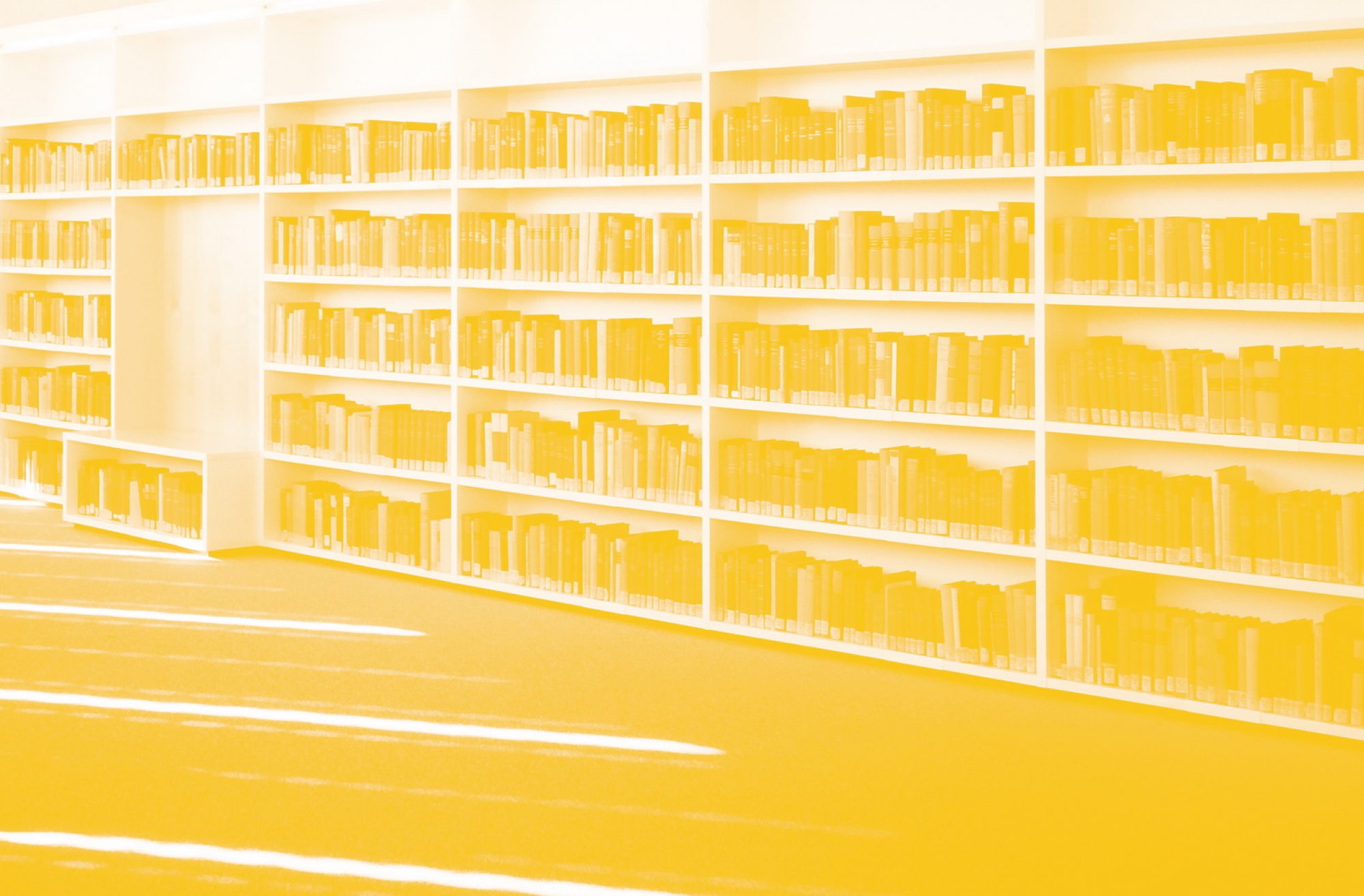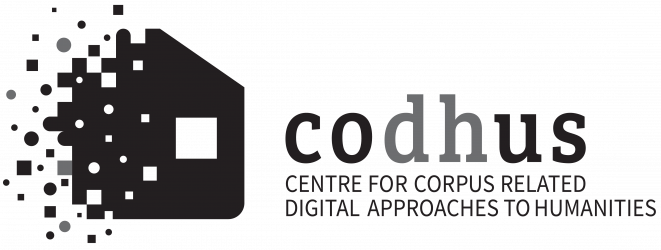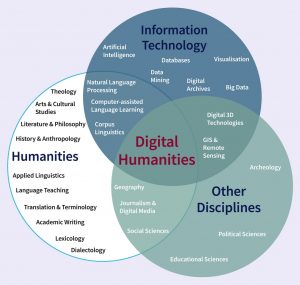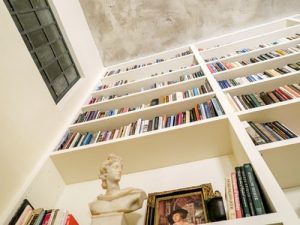Welcome to the website of the CODHUS research centre!
Humanities have entered the digital era. CODHUS researchers conduct corpus related humanities studies aiming at offering multi-disciplinary applicative solutions integrating digital method research.
- More about CODHUS here...
Humanities and technology
Humanities and technology do not reconcile, at least not in our collective imagination. We have become accustomed to the following archetypes: the HUMANIST who lives among books and who is not interested in technology and the IT SCIENTIST who is not interested in the „theoretical” topics approached by experts in linguistics, literature, history etc. We tend to separate these domains, but, in nowadays society, they are beginning to be more compatible than they seem (and they are about to even become complementary!). With the help of digital methods, the field of humanities opens up to a multitude of other domains that seemed intangible before: Computer-Assisted Language Learning, Natural Language Processing, Artificial Intelligence (AI), Intelligent Tutoring Systems, Big Data, or Technology in Education.
Have a look at the overview of intersecting areas relevant for Digital Humanities studies (Chitez et al, 2020) and imagine the possibilities:
All of these fields create the realm of Digital Humanities, where university students, teachers and researchers can exploit the potential of working with digital data and tools for the re-discovery of traditional humanities topics (e.g. quantitative literature studies; digital visualisation of linguistic-cultural developments; automatic detection of errors in translation studies). This will result in fundamental and applied studies that can either improve established theoretical paradigms or facilitate the creation of tools and apps for everyday use.
Digital Humanities at UVT
In order to compensate for the lack of use of digital methods in the Humanities in Romania, a team of researchers from the Faculty of Letters, History and Theology (FLIT) of the West University of Timișoara founded the CODHUS research centre (Centre for Corpus Related Digital Approaches to Humanities) in October 2019.
CODHUS is a Digital Humanities research centre, including different faculties and departments. For instance, the CODHUS centre has gathers researchers interested in literature created by or in the digital environment, in which poetry meets computing in a content creation algorithm. CODHUS aims to involve colleagues from the Department of Computer Science, interested in developing solutions for the implementation of digital methods in the study/ research of the Humanities fields.
Thus, the centre is not about philologists who discovered programming, nor about IT scientists who understood that there is applicability potential in the Humanities. It is about the complementarity between research and digitalisation in order to obtain immediate results with an applicative character in the trans- and interdisciplinary spectrum. Being on a familiar and common ground, both humanists and IT scientists can focus on the mission of popularizing the use of digital methods in all the disciplines where the expertise of the humanists is required.
CODHUS profile
The profile of the CODHUS centre is: a research centre which promotes the multidisciplinary use of digital methods related to corpus linguistics. Our centre has a strong applicative character, because we aim to offer practical solutions for teaching, learning or large-scale use: software solutions for universities or the pre-university environment (language teaching, translation tools, and digital teaching methods in the field of Humanities) and online resources (web pages, digital guides, databases).
CODHUS name
The name of the centre also has a story: COD (symbol of digitalisation) and HUS (hūs in Old English; Huus in Swiss German, meaning house). Therefore, our purpose is to create a house of digital codes for the Humanities.
News
- September 2024, Learner Corpus Research Conference (LCR 2024)
- September 2024, Computational Linguistics in Bulgaria Conference (CLIB 2024)
- April 2024, Inquiries in Digital Humanities: pedagogies, applications, intersections.
- December 2023, ConsILR International Conference
- September 2023, DIGITT workshop: #DIGITTworld – Digital Linguistics Workshop
- September 2023, Recent Advances in Natural Language Processing Conference (RANLP 2023)
- August 2023, EUROCALL 2023 International Conference
- August 2023 – first ROGER tutorial
- August 2023 – first EXPRES tutorial
- July 2023, Workshop at LIT Summer School
- June 2023, International Conference Future of Education, Florence, Italy
- June 2023, Conference presentation, Baia Mare
- May 2023, Digital Humanities Workshop
- May 2022, Participation in student conference
- April 2023, Participation in national student colloquium
- Workshop and conference presentations at Smart Diaspora
- December 2022, Digital Linguistics Week @ CODHUS
- December 2022 – LEMI, winning project
- November 2022, LUMEN Conference Presentation
- November 2022, ROGER within CLARIN repository
- October 2022, RADH book launch
- October 2022, New interns and volunteers @ CODHUS
- October 2022, Volunteers for online media project
- September 2022, DIGITT workshop: #DIGITTworld – Digital Linguistics Workshop
- September 2022, International Conference for Learner Corpus Research (LCR 2022)
- September 2022, Published Chapter in Interlingua series
- August 2022, EUROCALL 2022 International Conference
- July 2022, Workshop at LIT Summer School
- July 2022, 15th Teaching and Language Corpora (TaLC) Conference
- July 2022, 17th International Conference on Software Technologies (ICSOFT 2022)
- June-July 2022, International Conference Future of Education
- June-July 2022, The12th edition of the International Conference The Future of Education, Florence, Italy
- June 2022, the 13th Language Resources and Evaluation Conference (LREC) in Marseille, France
- June 2022, SIG 12 Biennial Conference #right2write
- June 2022, ParlaCLARIN III @ the 13th Language Resources and Evaluation Conference (LREC) in Marseille, France
- June 2022, 8th International Conference on Higher Education Advances (HEAd’22)
- June 2022, International Colloquium Communication and culture in Romance Europe (CICCRE)
- June 2022, NFEAP 2022 Conference: Beginnings
- 8th – 9th April 2022, conference presentation at ESIDRP 2022: English Studies at the Interface of Disciplines: Research and Practice, Ss. Cyril and Methodius University, Skopje, North Macedonia
- March-April 2022, DIGITT workshop – Literary studies
- March 2022, SPOR series launch
- March 2022, New interns and volunteers @ CODHUS
- November 2021, Guest Lecture at CODHUS/LIT
- November 2021, The 21st Conference of the Department of Linguistics of the University of Bucharest
- October 2021, The First International Conference on Recent Advances in Digital Humanities
- October 2021, CODHUS Call for interns and volunteers
- October 2021, International Conference interfaceing 2021: Pandemics & Plagues, Languages & Literatures, Taipei, Taiwan
- September 2021, EADH2021: Interdisciplinary Perspectives on Data, Krasnoiarsk, Rusia
- September 2021, CODHUS presentation during the marathon of student circles organized in the induction week, Welcome to WUT!
- August 2021, Invited CorpusCALL Symposium Talk, EUROCALL, Paris, France
- July 2021, EATAW Conference
- July 2021, International Conference Future of Education
- May 2021, CODHUS presentation at We are LIT! We are eLITe! event
- May 2021, DIGITT workshop – Literary studies
- May 2021, conference presentations at International Conference British and American Studies, Virtual Edition
- May 2021, First call for papers RADH 2021: The First International Conference on Recent Advances in Digital Humanities
- March 2021, Guest Lecture at the University of Bucharest
- March 2021, Guest Lecture at UVT
- March 2021, CODHUS Call for interns and volunteers
- December 2020, DIGITT workshop
- November 2020, International Conference Innovation in Language Learning, Florence
- Octomber 2020, CODHUS Call for interns and volunteers
- October 2020, DIGITT workshop: #DIGITTworld – Digital Linguistics Workshop
- April 2020, DIGITT workshop: What happens to literary studies when we #stayhome – first year specializations, Romanian language and literature A+A’
- February 2020, Training Corpus Linguistics/Digital Humanities for ROGER/CODHUS volunteers and interns
- January 2020, The Future of Higher Education – Bologna Process Researchers’ Conference (FOHE-BPRC4), Bucharest, Romania
- December 2019, DIGITT workshop: Linguistics studies in the digital era – for the 1st year students of the Faculty of Letters, History and Theology
- December 2019, The Seventh Digital Humanities Estonia conference, Use of Digital Cultural Heritage in Research and Education, Tallinn, Estonia
- November 2019, Module on Digital Methods for Academic Writing Workshop
- September 2019, #DIGITTworld – Digital Linguistics Workshop powered by ROGER and CODHUS







